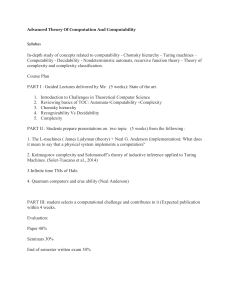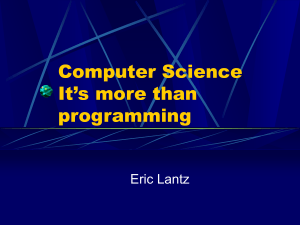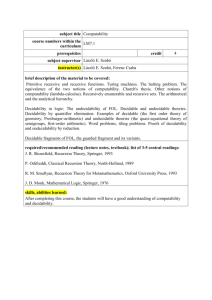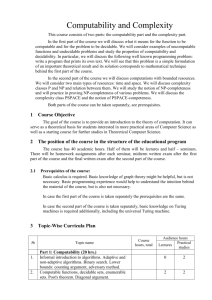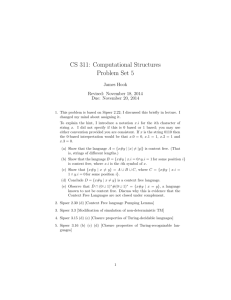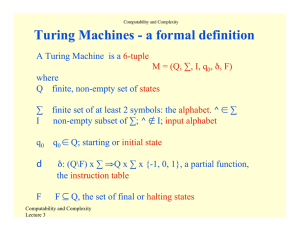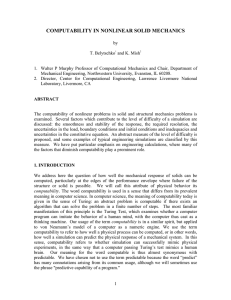PLEASE NOTE this is a sample reading list for the... – precise seminar content may change from year to year.
advertisement
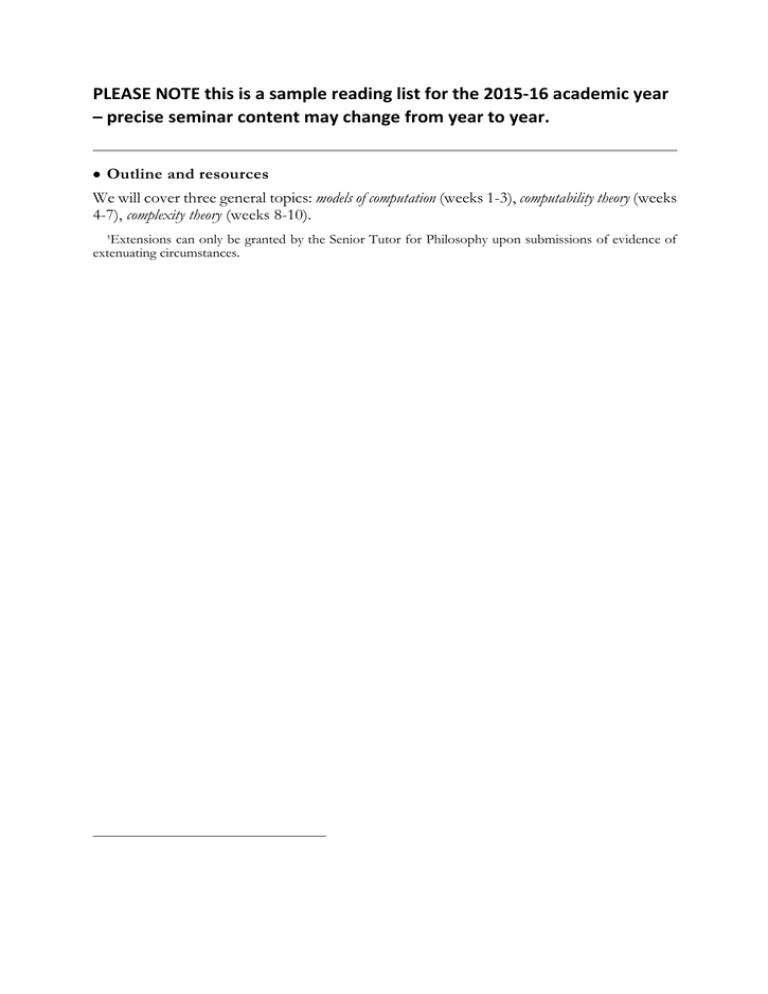
PLEASE NOTE this is a sample reading list for the 2015-16 academic year – precise seminar content may change from year to year. Outline and resources We will cover three general topics: models of computation (weeks 1-3), computability theory (weeks 4-7), complexity theory (weeks 8-10). Extensions can only be granted by the Senior Tutor for Philosophy upon submissions of evidence of extenuating circumstances. 1 Reading will primarily be drawn from the following sources: - Computability and logic 5th ed. by George Boolos, John Burgess, and Richard Jeffrey, Cambridge University Press, 2007. - The Open Logic Text (a part of the Open Logic Project). - Computability by Nigel Cutland, Cambridge University Press, 1980. - Computational complexity theory in the Stanford Encyclopedia of Philosophy - Introduction to the theory of computation by Michael Sipser, Thomson, 2006. I’ll be using the following software packages for demonstrations: - Tuatara Turing Machine Simulator (available as an executable Java file) - DrRacket (a variant of Scheme) You are encouraged to install and experiment with these yourself. Approximate schedule and readings (-) = required, (+) = recommended - Week 1: Introduction, the informal notion of algorithm, Turing machines (-) Boolos chapter 3 (+) Turing machines [SEP] - Week 2: More Turing machines, register machines (-) Boolos chapter 3 (-) Cutland Chapter 1 - Week 3: Recursive functions, Church’s Thesis (-) Open Logic “Recursive functions” (-) Cutland chapter 2-3 (+) Recursive functions [SEP] - Week 4: Enumerating machines, universality, the Halting Problem (-) Open Logic “Computability theory” sections 1-9 (+) Cutland chapters 4-5 - Week 5: Recursive and recursively enumerable sets (-) Open Logic “Computability theory” sections 9-13 (+) Cutland chapter 7 (*) Problem set 1 due - Week 6: Reading week (NO LECTURE OR SEMINAR) - Week 7: Reducibility and completeness (-) OL “Computability theory” sections 14-19 (+) Cutland chapter 9 - Week 8: Measuring time and space complexity, the complexity class P (-) Computational complexity theory [SEP] sections 1-2 (+) Sipser chapter 7.1-7.2 (*) Problem set 2 due - Week 9: Nondeterminism, the complexity class NP, NP-completeness (-) Computational complexity theory [SEP] section 3 (+) Sipser chapter 3.2, 7.3-7.5 - Week 10: The P 6=? NP problem, mathematical proof and complexity theory (-) Computational complexity theory [SEP] section 4 (+) Sipser chapter 10.1, 10.2, 10.4
